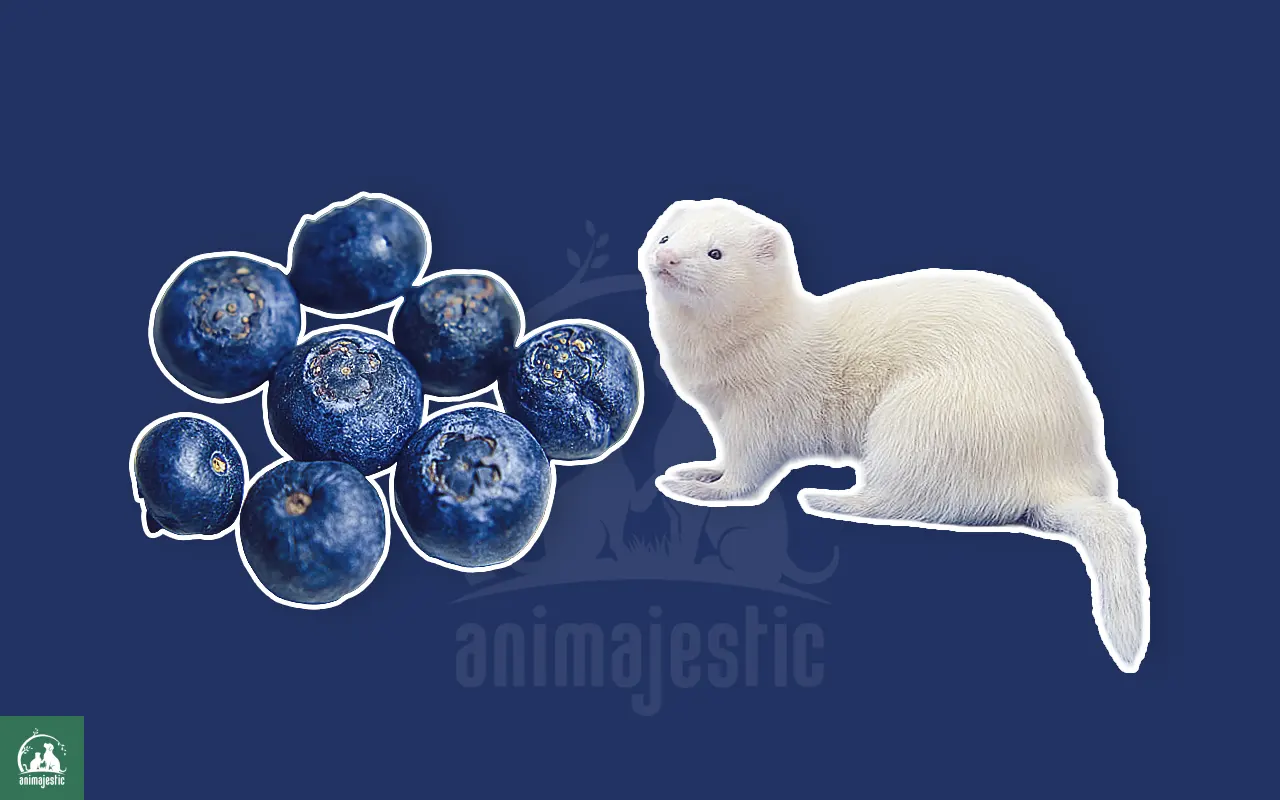Join me as I unravel the mystery: Can ferrets eat blueberries? You’re about to discover the extensive and exceptional truth about this question!
When it comes to pet care, one inevitable topic of discussion is diet. If you are a ferret owner (or a prospective one), you’ve probably spent a fair amount of time pondering your beloved pet’s nutritional needs.
A question that frequently pops up is about fruits and whether they’re a good addition to a ferret’s diet. Specifically, a fruit we all love – blueberries!
Understanding the Nutritional Power of Blueberries
Blueberries are renowned for their myriad health benefits for humans.
These delicious fruits are packed with:
- Antioxidants, particularly anthocyanins, which give blueberries their vibrant color
- Dietary fiber
- Vitamin C and K
- Manganese
However, just because blueberries are beneficial for humans doesn’t automatically qualify them as suitable for our furry little friends.
To make an informed judgment, you need to explore with me the understanding of ferrets’ dietary needs.
The Dietary Needs of Ferrets
Ferrets are obligate carnivores. This means their primary source of food in their natural habitat is meat. They have short digestive systems designed to absorb and utilize the nutrients from meat.
Everything from their teeth to their digestive tract is adapted to handle a carnivorous diet and this said diet is generally high in protein, high in fat, and low in carbohydrates and fiber.
So, where does a fruit like a blueberry fit into all of this? Let’s explore further.
Potential Benefits of Blueberries for Ferrets
Considering the nutritional composition of blueberries, it seems like they could benefit ferrets, owing to the following potential pros:
- Antioxidant Content: The high concentration of antioxidants in blueberries may promote overall health in ferrets, just like they do in humans.
- Vitamins and Minerals: Blueberries are a good source of vitamins K, C, and manganese, which can contribute positively to a ferret’s health.
However, while these benefits might look promising, they shouldn’t overshadow the fundamental dietary nature of ferrets. It’s essential to remember that what works for us might not work for these small creatures.
Possible Risks of Blueberries for Ferrets
While the potential benefits of ferrets eating blueberries sound tempting, there are some risks and drawbacks to keep in mind:
- High Sugar Content: Blueberries, like most fruits, contain a high level of natural sugars. Ferrets’ bodies are not designed to process sugars and carbohydrates effectively; too much sugar can lead to health problems such as obesity and insulinoma, a form of pancreatic cancer commonly found in aging ferrets.
- Digestive Troubles: Ferrets’ short, quick digestive process may not adequately cope with the fiber and sugars found in fruits like blueberries. This could lead to uncomfortable situations such as bloating, gas, or diarrhea.
- Danger of Imbalance: Although it’s tempting to diversify a ferret’s diet, adding too many fruits or vegetables can lead to an imbalance in their primary diet requirements—high-quality, meat-based proteins.
These potential risks must be carefully evaluated to give a clear picture of whether blueberries should be part of a ferret’s diet.
Can Ferrets Eat Blueberries?
Weighing in on the potential pros and cons, it’s clear it’s not a straightforward “YES” or “NO” answer. Ferrets can eat blueberries but with some stipulations and strict moderation.
Blueberries should be given to ferrets as a treat, not as a dietary mainstay. They should be offered sparingly and in tiny amounts.
Even then, it’s important to observe your ferret for any adverse reactions—each ferret is unique, and what works for one may not suit another.
Healthy Ferret-Friendly Options
While we’ve established that blueberries can be an occasional treat for ferrets, there are more fitting options to make the mainstay of your ferret’s diet.
As obligate carnivores, ferrets thrive on:
- Meat: Ferrets require a diet rich in meat. Think quality poultry, lamb, and beef. Raw meat is excellent, but cooked meat (without any spices or seasoning) can also work.
- Animal Fats: Essential for maintaining a healthy coat and skin, animal-based fats should form a significant portion of their diet.
- High-Quality, Meat-Based Ferret Foods: Commercially available ferret foods that focus heavily on meat-based proteins are great for meeting their dietary needs efficiently.
Amidst the conversation about what our pets can and cannot eat, the focus should always be on their natural dietary habits, and for ferrets, meat-based, high-protein diets reign supreme.
Conclusion
Wrapping up the discussion, the answer to “Can ferrets eat blueberries?” remains a cautious yes—with the understanding that blueberries are an occasional treat, not a dietary mainstay.
While they may add variety to the diet, the amount must be insignificant—ferrets need a robust, protein-rich diet primarily composed of meats.
Remember, owning a ferret requires understanding and adhering to their dietary peculiarities. As ferret owners, we should make sure their meal times are a source of nourishment and joy.
With your newfound perspective on blueberries, remember that moderation is key as you venture on the remarkable journey of ferret parenting.
